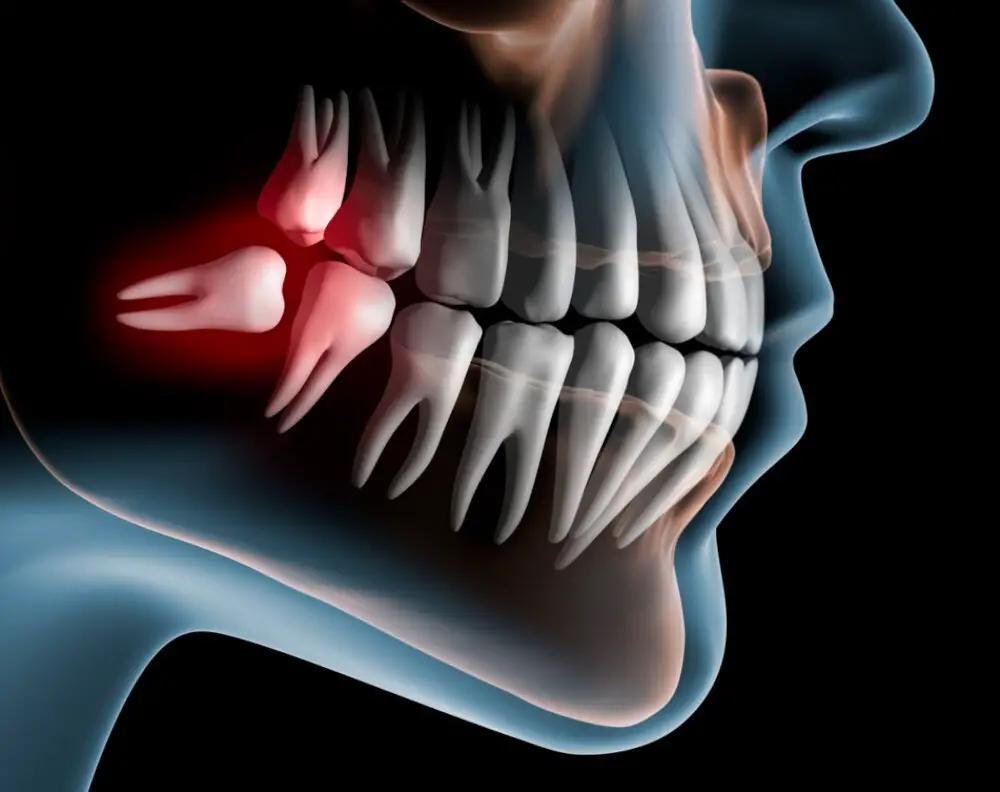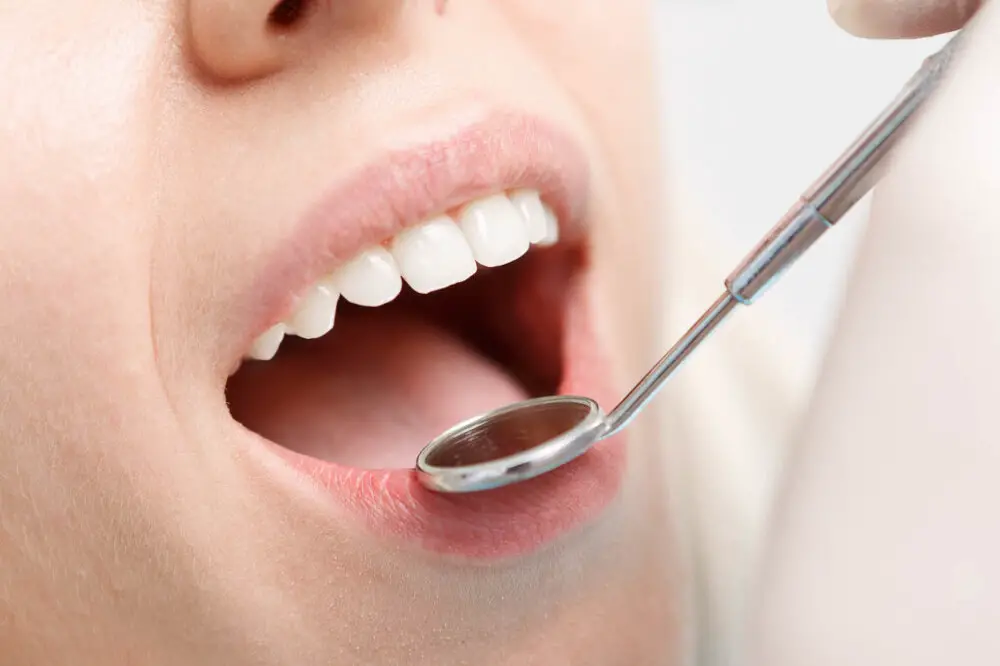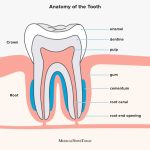Why Do My Teeth Hurt When Eating Sweets? Exploring Causes Beyond Cavities

Many of us have experienced the discomfort of tooth pain while indulging in our favorite sweets. The sharp, shooting pain can be enough to spoil the enjoyment of even the most delicious treats. However, cavities are not always the culprit when it comes to tooth sensitivity. In fact, there are several other reasons why our teeth may hurt when eating sweets. In this article, we will explore some of these causes and offer some advice on how to alleviate the pain. One reason why our teeth can hurt when consuming sugary treats is due to enamel erosion. Over time, our tooth enamel can become worn down due to factors such as acid reflux, excessive consumption of acidic foods and drinks, and aggressive tooth brushing. When the enamel is eroded, the underlying dentin layer is exposed, which contains tiny tubes leading to the nerve endings in the tooth. When sugar enters these tubes, it can stimulate the nerves and cause pain. Additionally, the loss of enamel can make our teeth more susceptible to cavities, which can further exacerbate the problem.
Many people experience tooth sensitivity or pain when consuming sweets or sugary foods, and often assume that it’s due to cavities. However, there are several other factors that can contribute to this discomfort. One common cause is enamel erosion, which occurs when acidic substances in food and drink wear away the protective outer layer of the teeth. Another possibility is gum recession, which exposes the sensitive roots of the teeth to the sugary substances. Additionally, tooth grinding and clenching can cause tooth sensitivity and pain, as can certain dental procedures and products. Understanding the root cause of tooth pain when eating sweets is important in order to properly address and treat the issue.
Cavities, also known as dental caries, are a common dental problem that occurs when bacteria in the mouth produce acid that erodes the tooth enamel. Over time, this erosion can lead to the formation of small holes or openings in the tooth, which are known as cavities. These cavities can cause tooth pain, especially when eating sweets or other foods that are high in sugar. This is because the bacteria that cause cavities thrive on sugar, and when you consume sugary foods, they produce more acid that can further erode the tooth enamel, causing pain and sensitivity. While cavities are a common cause of tooth pain when eating sweets, there are also other factors that can contribute to this discomfort, such as gum disease, tooth sensitivity, and tooth fractures.
Sensitivity

Sensitivity is a common dental problem that causes discomfort and pain when eating or drinking hot, cold, sweet, or acidic substances. It occurs when the enamel of the teeth wears away, exposing the underlying layer of dentin, which contains tiny tubes that lead to the nerves of the teeth. When these tubes are exposed, they can be easily stimulated by external stimuli such as temperature, pressure, and acidity, causing pain and discomfort. Sensitivity can also result from gum recession or periodontal disease, which can expose the roots of the teeth and make them more sensitive to external stimuli. There are several ways to manage sensitivity, including practicing good oral hygiene, using desensitizing toothpaste, avoiding acidic and sugary foods and drinks, and using fluoride treatments. Good oral hygiene involves brushing and flossing regularly to remove plaque and bacteria that can cause tooth decay and gum disease. Desensitizing toothpaste contains ingredients such as potassium nitrate, which can help reduce sensitivity by blocking the tiny tubes in the dentin that lead to the nerves of the teeth. Avoiding acidic and sugary foods and drinks can help prevent further damage to the enamel and dentin of the teeth, while fluoride treatments can help strengthen the enamel and reduce the risk of tooth decay. By following these simple steps, individuals can manage their sensitivity and enjoy their favorite foods and drinks without discomfort or pain.
Tooth sensitivity refers to the pain or discomfort experienced in the teeth when exposed to certain stimuli such as hot or cold drinks, sweet or acidic foods, or even cold air. This condition can occur due to various reasons beyond cavities, including gum recession, enamel erosion, or cracked teeth. When the protective enamel layer of the teeth wears down or the gums recede, the underlying dentin is exposed, which contains tiny tubules that lead to the tooth’s nerve endings. As a result, any external stimuli can cause a sharp or shooting pain in the teeth. Tooth sensitivity can be a frustrating and uncomfortable experience, but it is treatable and preventable with proper dental care and hygiene.
Excessive sugar intake can cause a myriad of dental problems, including tooth sensitivity and discomfort while eating sweets. When sugar is consumed, it interacts with the bacteria in our mouths to create acids, which can erode tooth enamel and cause cavities. Additionally, consuming sugary foods and drinks regularly can lead to the development of plaque, a sticky film of bacteria that forms on teeth and can also contribute to tooth decay. Over time, the constant exposure to sugar can cause the nerves in teeth to become more sensitive, leading to discomfort and pain when consuming sweets or hot and cold foods. It’s important to limit sugar intake and maintain good oral hygiene to avoid these issues and ensure optimal dental health.
Tooth sensitivity can be a frustrating and uncomfortable experience. There are several ways to address it, including using desensitizing toothpaste, avoiding acidic and sugary foods, and incorporating fluoride treatments into your dental routine. Additionally, it’s important to practice good oral hygiene habits, such as brushing twice a day and flossing regularly, to prevent further damage to your teeth. If the sensitivity persists or worsens, it’s important to seek the advice of a dental professional who can determine any underlying causes and provide appropriate treatment options.
Acid Erosion

Acid erosion is a type of tooth wear that occurs when the enamel on teeth is exposed to acid frequently and for extended periods. Acid erosion can occur due to a variety of factors, including frequent consumption of acidic foods and drinks such as citrus fruits, soda, and sports drinks, as well as certain medical conditions that cause acid reflux or vomiting. While cavities are commonly associated with tooth pain from sweets, acid erosion can also cause sensitivity and discomfort in the teeth, particularly when consuming acidic or sugary foods. The erosion of tooth enamel can lead to a range of dental problems, including tooth sensitivity, discoloration, and weakened teeth that are more prone to cavities. In severe cases, acid erosion can even cause the teeth to become thin and transparent, increasing the risk of breakage and loss. Preventing acid erosion involves minimizing exposure to acidic foods and drinks, practicing good oral hygiene habits, and seeking treatment for any underlying medical conditions that may contribute to acid reflux or vomiting. By taking steps to protect tooth enamel and maintain good dental health, individuals can reduce the risk of tooth pain and other issues associated with acid erosion.
Acid erosion is a dental condition that occurs when the enamel of the teeth is gradually dissolved by acidic substances. This condition is caused by the frequent consumption of acidic foods and drinks, such as citrus fruits, sodas, and sports drinks. When these substances come into contact with the teeth, they weaken the protective layer of enamel, making the teeth more susceptible to decay, sensitivity, and pain. Over time, acid erosion can cause significant damage to the teeth, leading to discoloration, cracks, and even tooth loss. To prevent acid erosion, it is important to limit the consumption of acidic foods and drinks, and to practice good oral hygiene habits, such as brushing and flossing regularly.
Consuming sugary foods and drinks can cause tooth sensitivity and pain due to the acid produced by the bacteria in our mouth. The bacteria feed on the sugars and produce acid, which attacks the enamel, the protective layer of our teeth. The acid weakens the enamel, making it more susceptible to erosion and decay. When the enamel is compromised, the underlying dentin, which contains nerve endings, is exposed, causing pain and sensitivity. Furthermore, the high sugar content in these foods and drinks can lead to the formation of plaque, a sticky film of bacteria that can accumulate on the teeth and irritate the gums, leading to inflammation and further tooth sensitivity. It is, therefore, essential to limit the consumption of sugary foods and drinks, practice good oral hygiene, and visit the dentist regularly to prevent tooth decay and sensitivity.
Acid erosion, a condition in which the enamel of teeth becomes weakened and worn away due to exposure to acidic substances, can have a significant impact on tooth health. When enamel is eroded, teeth become more sensitive to hot and cold temperatures, sweet foods, and acidic drinks. Over time, acid erosion can lead to the formation of cavities, as well as tooth discoloration, chipping, and cracking. Additionally, acid erosion can cause the teeth to become more susceptible to decay and infection, as the protective enamel layer is no longer present to shield the underlying layers of the tooth. To prevent acid erosion and protect tooth health, it is important to limit consumption of acidic foods and drinks, maintain good oral hygiene habits, and talk to a dentist about preventative measures like fluoride treatments or dental sealants.
Acid erosion is a common dental problem that occurs when the enamel on our teeth wears away due to the acidic substances found in foods and drinks. To prevent acid erosion, it is important to limit your intake of acidic foods and drinks such as citrus fruits, soft drinks, and sports drinks. You can also minimize the effects of acid erosion by rinsing your mouth with water after consuming acidic foods, using a straw when drinking acidic beverages, and waiting at least 30 minutes before brushing your teeth after eating or drinking anything acidic. Additionally, using fluoride toothpaste and visiting your dentist regularly for check-ups and cleanings can help protect your teeth from acid erosion.
Gum Recession

Gum recession, also known as gingival recession, is a common dental problem that occurs when the gum tissue surrounding the teeth wears away, exposing the root surface of the tooth. This condition can cause tooth sensitivity, as the exposed root surface is not protected by enamel like the rest of the tooth. Gum recession is often caused by poor oral hygiene, periodontal disease, aggressive brushing, or genetic factors. If left untreated, gum recession can lead to tooth loss, so it is important to address the underlying cause and seek treatment from a dental professional. Treatment options for gum recession depend on the severity of the condition. In mild cases, improving oral hygiene habits and using desensitizing toothpaste may be enough to alleviate symptoms. In more severe cases, gum graft surgery may be necessary to restore the gum tissue and protect the tooth root. It is important to address gum recession promptly, as it can lead to further complications and compromise overall oral health. By maintaining good oral hygiene habits and seeking treatment when necessary, individuals can prevent and manage gum recession to keep their teeth healthy and pain-free.
Gum recession refers to the process of the gum tissue that surrounds the teeth pulling away from the tooth, exposing more of the tooth or even the root. This can result in tooth sensitivity or pain, especially when eating sweet or sour foods. Gum recession can occur due to a number of factors, including periodontal disease, aggressive brushing, genetics, and hormonal changes. When gum recession is left untreated, it can lead to further dental issues, including tooth loss. It is important to address gum recession promptly by seeking professional dental care, practicing good oral hygiene habits, and avoiding behaviors that can aggravate the condition.
Excessive sugar intake can cause teeth sensitivity and discomfort while eating sweets due to the erosion of enamel, the protective layer of the teeth. The bacteria in the mouth feed on the sugar and produce acid that attacks the enamel, leading to its breakdown and exposing the underlying dentin layer. This results in hypersensitivity to hot, cold, and sweet foods. Moreover, sugary foods and drinks can also lead to the formation of plaque, a sticky film of bacteria, that can accumulate on the teeth and cause gum inflammation and tooth decay over time. Therefore, it is essential to limit sugar intake and maintain good oral hygiene practices to prevent dental problems and discomfort while indulging in sweet treats.
Gum recession and tooth sensitivity are often interrelated as gums that recede expose the sensitive roots of teeth, which are not protected by enamel. This exposure can be caused by a variety of factors, including aggressive brushing, gum disease, and aging. When the roots are exposed, they can become more sensitive to temperature changes, acidic foods, and sugary substances. This sensitivity can cause discomfort and pain while eating or drinking, especially when consuming sweets. It is important to address gum recession and tooth sensitivity as soon as possible to prevent further damage to the teeth and gums.
Gum recession is a common problem that can cause tooth sensitivity and even tooth loss. To prevent gum recession, it is important to practice good oral hygiene habits such as brushing and flossing regularly. Using a soft-bristled toothbrush and avoiding aggressive brushing can also help prevent gum recession. Additionally, avoiding tobacco use and maintaining a healthy diet can contribute to healthy gums. Regular dental checkups can also help identify and address any potential gum recession issues before they become more serious. By taking these preventative measures, individuals can help maintain healthy gums and reduce their risk of gum recession.
Bruxism

Bruxism is a condition characterized by the grinding, gnashing or clenching of teeth. It is a common disorder that affects both children and adults, and can occur during the day or at night while sleeping. Bruxism can be caused by stress and anxiety, misaligned teeth, or even certain medications. In some cases, it can lead to tooth damage and jaw pain, as well as headaches and earaches. Treatment options include stress management techniques, mouthguards to protect teeth during sleep, and orthodontic treatments to correct misaligned teeth. Bruxism can be a difficult condition to manage as it often occurs unconsciously. It can cause significant damage to teeth, leading to sensitivity and pain when eating sweets or other types of food. It can also cause jaw pain and headaches, which can be debilitating. It is important to seek treatment for bruxism to prevent further damage to teeth and to alleviate any associated pain. In addition to traditional treatment options, some people find relief through relaxation techniques such as yoga or meditation. It is essential to consult with a dental professional for an accurate diagnosis and personalized treatment plan.
Bruxism is a condition in which a person grinds, clenches, or gnashes their teeth, often unconsciously during sleep. This can lead to a variety of dental problems, including worn-down teeth, chipped or cracked teeth, and damage to the jaw muscles and joints. Bruxism can be caused by a number of factors, including stress and anxiety, misaligned teeth, and sleep disorders. If left untreated, bruxism can lead to more serious dental problems and chronic pain. Treatment options for bruxism may include lifestyle changes, such as stress reduction techniques, wearing a mouthguard at night, and dental procedures to correct misaligned teeth.
Stress and anxiety can have a significant impact on your physical health, including your teeth. When you experience stress or anxiety, you may clench your jaw or grind your teeth, a condition known as bruxism. This habit can cause your teeth to become sensitive and even painful, especially when consuming sweets that are high in sugar or acidic. In addition to bruxism, stress and anxiety can also weaken your immune system, making it easier for bacteria and plaque to build up on your teeth and cause decay. Therefore, it is important to address any underlying stress or anxiety issues to prevent dental problems and maintain good oral health.
Bruxism, commonly known as teeth grinding, is a condition in which an individual involuntarily clenches or grinds their teeth, often while sleeping. This habitual grinding can cause the teeth to wear down and become sensitive, leading to tooth pain when eating sweets or even regular food. Bruxism can also cause headaches, jaw pain, and muscle soreness. Although stress and anxiety can contribute to the development of bruxism, it can also be a result of an abnormal bite or missing or crooked teeth. To prevent tooth pain associated with bruxism, individuals can use a mouthguard at night or undergo orthodontic treatment to correct dental misalignments.
Bruxism, or teeth grinding, can be a painful and concerning issue for many individuals. To address bruxism, there are a variety of options available. One of the most common solutions is to wear a night guard, which is a custom-fitted appliance that is worn while sleeping to protect the teeth and reduce grinding. It may also be helpful to identify and address any underlying causes of stress or anxiety that may be contributing to the bruxism. Additionally, practicing relaxation techniques such as meditation or deep breathing exercises may help to reduce the frequency and intensity of teeth grinding. In some cases, medication or therapy may also be recommended to treat bruxism.
Tooth pain when eating sweets is a common dental problem that is often associated with cavities. However, there are other factors that can cause this discomfort, such as gum recession, cracked teeth, and exposed dentin. Gum recession occurs when the gum tissue pulls away from the tooth, exposing the sensitive roots, while cracked teeth can cause sharp pain when biting down on hard or sticky foods. Exposed dentin is a condition in which the protective enamel layer of the tooth is worn down, leaving the sensitive dentin layer exposed to food and drink. These causes can often be prevented or treated with proper dental care, such as regular checkups and cleanings, and avoiding excessive consumption of sugary or acidic foods and beverages.
Maintaining good oral health is crucial to our overall well-being. It not only helps prevent tooth decay and gum disease but also keeps our breath fresh, our teeth bright, and our smiles confident. Poor oral hygiene can lead to various health problems, such as heart disease, diabetes, and even cancer. Brushing twice a day, flossing, and regular dental check-ups are essential to maintaining good oral health. Additionally, avoiding sugary and acidic foods and drinks can help prevent tooth sensitivity, decay, and erosion. By prioritizing our oral health, we can improve our overall health and quality of life.
To prevent tooth pain when consuming sugary foods and drinks, there are a few tips to keep in mind. First, it’s essential to brush your teeth twice a day with fluoride toothpaste and floss regularly to remove any plaque buildup. Additionally, rinsing your mouth with water after consuming sugary foods or drinks can help wash away any lingering sugars. Chewing sugar-free gum can also stimulate saliva production, which helps neutralize acids in the mouth. Finally, limiting your intake of sugary foods and drinks can go a long way in preventing tooth pain and maintaining overall dental health. By following these tips, you can enjoy the occasional sweet treat without worrying about tooth pain or damage to your teeth.
Conclusion

In conclusion, tooth sensitivity to sweets can be caused by a variety of factors beyond cavities. From enamel erosion to gum recession, there are several potential culprits that can cause discomfort when indulging in sugary treats. It is important to maintain good oral hygiene habits, such as regular brushing and flossing, and to visit a dentist regularly to address any underlying dental issues that may be causing sensitivity. Additionally, reducing sugar consumption and opting for healthier alternatives can also help to alleviate discomfort and promote overall dental health. As with any health concern, it is important to consult with a medical professional for personalized advice and treatment options.







